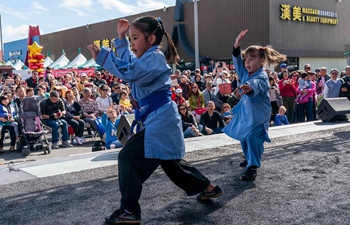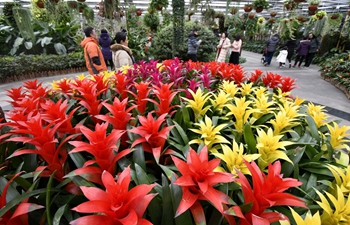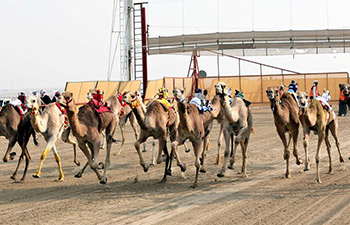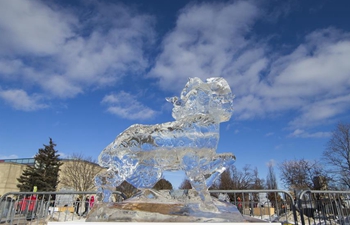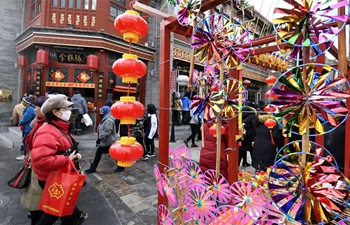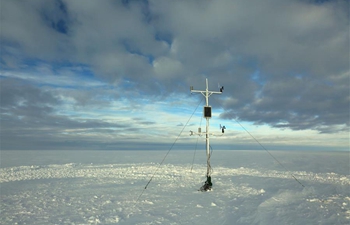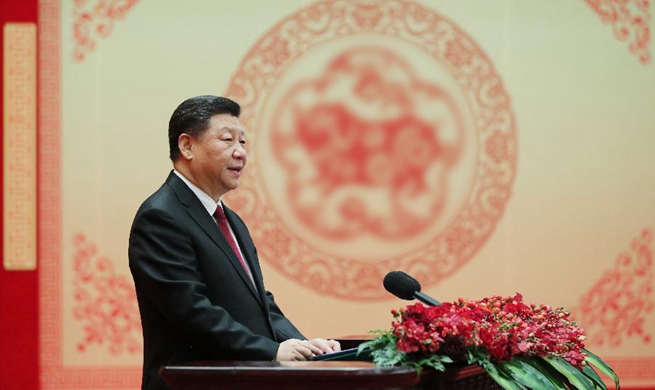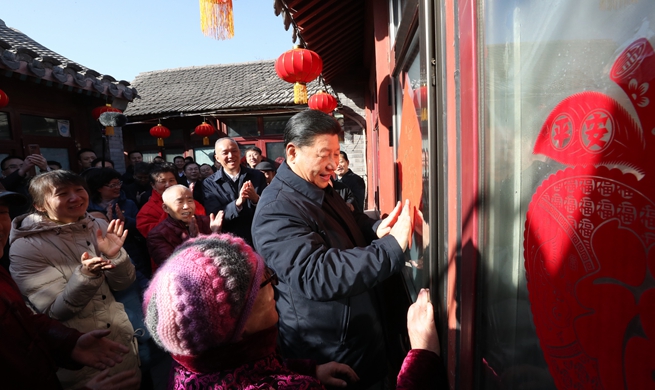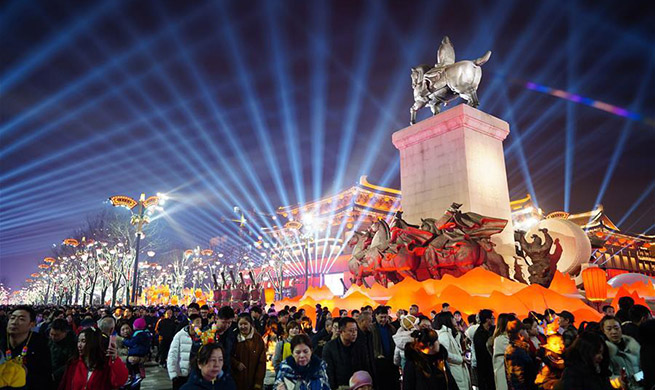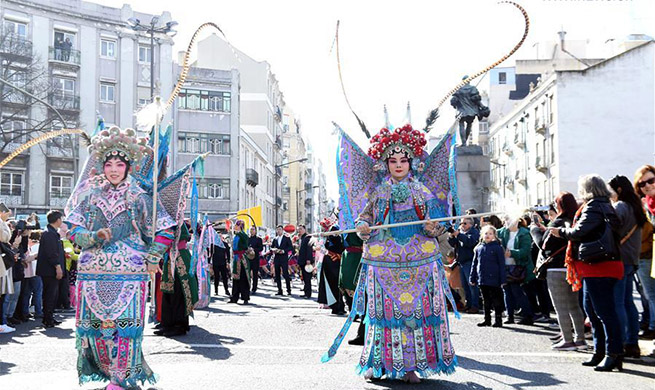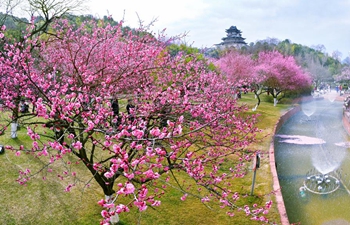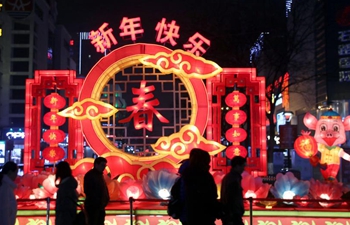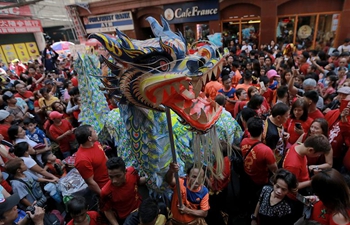LAGOS, Feb. 10 (Xinhua) -- Nigeria, Africa's most populous country, will on Feb. 16 vote to elect the president that will man the affairs of the nation for the next four years.
The 2019 presidential election is widely viewed as a two-horse race between two leading contenders - the incumbent President Muhammadu Buhari representing the ruling All Progressive Congress (APC), and former Vice President Atiku Abubakar, the candidate of Nigeria's biggest opposition, the People's Democratic Party (PDP).
Abubakar, accusing the Buhari administration of failing to address Nigeria's economic problems in the past years, unveiled a campaign manifesto covering issues ranging from jobs, national security, healthcare, education, infrastructure and other critical sectors of the economy.
He promises to boost investment in the country's oil sector if he becomes president, with measures including introduction of bidding rounds for marginal fields and oil blocks, privatization of government-owned refineries, and issuance of new licences for greenfield investments in crude refineries.
Abubakar was born on November 25, 1946 to an Fulani trader and farmer family in Jada village in Adamawa state, northeast Nigeria. He emerged as the presidential candidate of the PDP following his victory at the party primary in October 2018.
After graduation from university in 1969, he became a customs service officer, and started his venture into business.
As a retired deputy director of Nigeria Customs Service and one of the most successful businessmen in Nigeria, Abubakar unsuccessfully contested in 1991 for the governorship seat of the defunct Gongola State which is now Adamawa and Taraba States.
In 1998 he was elected governor of Adamawa State. But before being sworn in, he was selected by then presidential candidate Olusegun Obasanjo as his running mate. The two went on to win elections in February 1999.
During his tenure as vice president from 1999 to 2007, Abubakar presided over the National Council on Privatization, overseeing the sale of hundreds of loss-making and poorly managed public enterprises.
However, the union between Obasanjo and Abubakar fell apart as the crack in relationship became visible at the beginning of their second tenure.
Abubakar was subsequently forced out of the PDP, and joined the Action Congress (AC). He got the presidential ticket of the party in 2007. He came third behind Umaru Yar'Adua of PDP and the then All Nigeria People's Party (ANPP) candidate Buhari.
Following the 2007 elections, Abubakar returned to the PDP. In 2011, Abubakar contested for the presidential ticket of his party but failed.
Abubakar moved over to APC when the mega coalition was formed ahead of the 2015 general election.
In the contest involving him and Buhari, Abubakar lost the presidential ticket to the retired general at the APC presidential primary held in Lagos late 2014.
Though the APC was victorious in the presidential election, Abubakar had become estranged with the party, and soon returned to the PDP where he was able to get the presidential ticket which has now pitched him against Buhari.
However, the multiple allegations of corruption and fraud levelled against Abubakar continue to taint his image.
A senate investigation in 2006 found Abubakar guilty of illegally taking funds belonging to the Petroleum Training Development Fund (PTDF).
The former vice president has also been consistently linked with jailed US Congressman William Jefferson who was sentenced to 13 years in a US jail for bribing Nigerian officials in 2007.
STRONGHOLDS
Several political analysts are of the opinion that for any of the two leading candidates to win the presidential election, they must do well in the southwest and northern part of the country where 61,105,675 out of the 84,004,084 eligible voters reside.
In his opinion, Rob Iweka, a senior political analyst based in Lagos, said whoever to get power must relate well with northern Nigeria.
Going by traditional voting pattern, Buhari, the APC candidate has since his foray into politics in 2003 always performed well in the northeast part of the country made up of Bauchi, Adamawa, Yobe, Borno and Gombe, with Taraba being the only exception.
Buhari is from the northwest. This geopolitical zone provided him with 46 percent of his entire 15 million vote count in 2015.
Abubakar, who is from the northeast, will have to eat into this significantly if he is to mount a realistic challenge.
Incumbent Vice President Osinbajo is a Yoruba from the populous southwest, where APC controls all the region.
The ruling party has assured its members and supporters that it will continue to consolidate on its majority status in the 2019 general elections in spite of the defection of some members.
The party remained in firm control of up to 24 states of the 36 states of the country and maintained clear majority in Federal House of Representatives and state assemblies.
